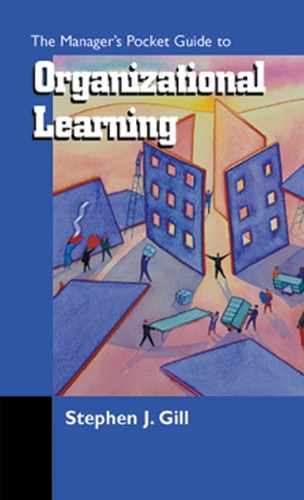If you are a manager in an organization that strives for high performance, you face tremendous challenges in today’s environment. You don’t have to be told this, because you already know. You see these challenges every day: constant change in customers and markets, in ways of doing business, and in technology; workers who are more loyal to their careers than to your organization; a workforce that is diverse in culture, language, and expectations; top management that wants you to keep employees happy while at the same time demanding that you increase productivity.
You ask yourself:
• How can I develop and keep good employees?
• How can I develop leaders, for now and for the future?
• How can I become more effective as a team member, team leader, and supervisor?
• How can I most effectively deal with performance problems?
• How can I help employees learn their new and often changing jobs quickly, so that we do not lose time and money?
• How can I help employees learn what they need to know without pulling them away from their jobs?
• How can I help employees get up-to-speed on our new products and services quickly?
• Why don’t employees treat customers with more respect and provide them with better service?
• Why don’t employees treat each other with more respect, and learn how to cooperate?
• How can I find the time to do my job?
You will not find the answers to these questions in a college classroom or in a management book. Those resources can help you frame the concepts and theory for understanding the questions and offer possible answers to the questions, but taking the best course of action requires that you continually learn. It requires that you learn with an organizational focus and purpose. It requires that you look past the individual to the myriad of factors that affect organizational performance and ask, “What is it about the structure of my organization that is contributing to this behavior, and what can I do about it?”
This kind of learning has been labeled organizational learning. Organizational learning is the process of forming and applying collective knowledge to problems and needs. It is the kind of learning that helps the organization continually improve, achieve goals, and attain new possibilities and capacities. It is the kind of learning that taps into employee aspirations, fueling commitment and creating the energy to change.
An organization learns when its employees are continuously creating, organizing, storing, retrieving, interpreting, and applying information. This information becomes knowledge (and, hopefully, wisdom) about improving the work environment, improving performance, improving business processes, and achieving long-range goals that will make the organization successful. The learning is intentional; it is for the benefit of the organization as a whole.
Traditional thinking about learning stops at individual training and skill development. However, today’s complexity demands that we think about learning as part of everything we do—individually, in small groups, and as a total organization.
